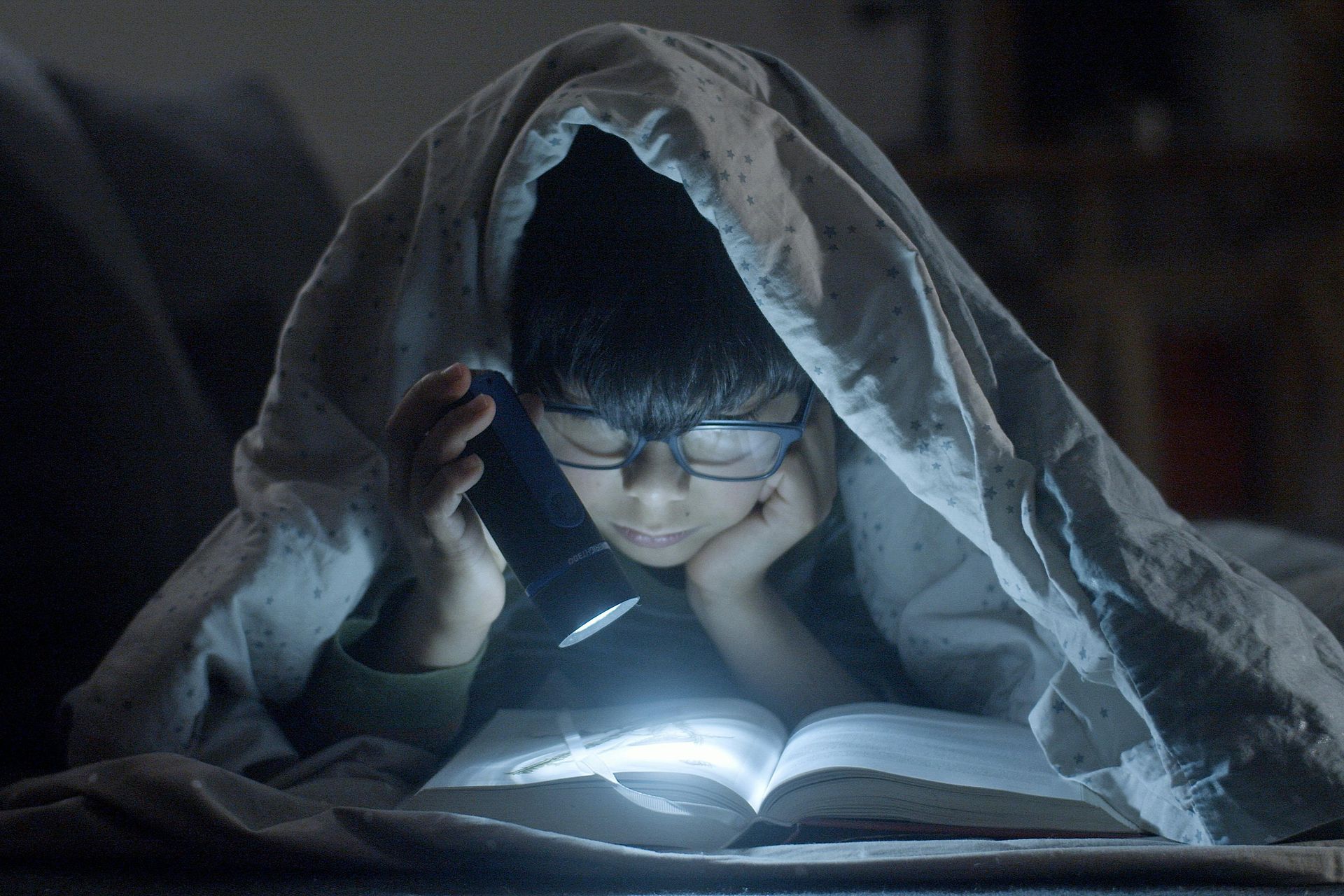The Art and Science of Brand Storytelling
AJ Oberlender

Imagine this – you’re sitting at the edge of your seat, riveted, hanging on to every word, every detail of the tale unfolding before you. You are enthralled, not merely by the well-crafted plot, but also by the connection you feel to the story and its characters. This is the power of storytelling – it’s engaging, compelling, and almost hypnotic in its allure. Now, take a step back and picture this magic harnessed and directed towards building a brand. This is the fascinating universe of brand storytelling, a place where art meets science and stories transform businesses.
At its core, brand storytelling is about weaving a narrative around your brand that resonates with your audience on a human level. It’s about crafting stories that not only articulate what your brand stands for but also connect with your audience emotionally and intellectually.
In our digital era, consumers are more than just passive recipients of marketing messages. They are discerning, informed, and crave genuine relationships with the brands they patronize. This is where brand storytelling steps in, serving as the bridge that links brands with their customers on a deeper level.
Consider a well-known name, such as Apple. Sure, they’re a tech giant known for innovative products. But their brand story goes beyond just product features. It’s about challenging the status quo, thinking differently, and enabling their customers to do the same. That narrative is what makes people line up for hours, even days, to get their hands on the latest Apple product. They aren’t just buying a product; they’re buying into a story, a lifestyle, an ethos.
The Art of Storytelling
The art of brand storytelling is, in essence, the art of creating compelling narratives. Great brand stories are memorable, shareable, and they foster a sense of personal connection. A brand’s story should not only embody the company’s mission and values, but also engage the audience, inviting them to become a part of the narrative.
Take Patagonia, for instance. Their story is not simply about selling high-quality outdoor apparel. It’s about a deep love for the environment and a commitment to sustainable practices. It’s about inviting their consumers to join them in their mission. Their customers aren’t just customers, they’re co-crusaders in the fight to save our planet. That’s a compelling narrative, and one that certainly sticks in the minds of their consumers.
While the art of storytelling is crucial, the science behind it should not be underestimated. Brand storytelling is a strategic exercise, backed by a solid understanding of your audience, their needs, desires, and values. The narratives that resonate most are those that mirror the audience’s own stories, or their aspirations.
Consider the famous Dove Campaign for Real Beauty. They skillfully leveraged the power of storytelling by representing real women with different body shapes, ages, and ethnicities in their campaigns. They touched a nerve, connecting with millions of women who were tired of the unattainable beauty standards perpetuated by the media. The campaign was a huge success because Dove deeply understood their audience and created a narrative that directly addressed their insecurities and desires.
Data plays a key role in this understanding. Modern businesses have access to vast amounts of data that can provide invaluable insights into their audience. Everything from consumer behaviour, preferences, purchasing patterns to sentiments and feedback can be harnessed to tailor narratives that hit the right chords.
Let’s dive into some examples to illustrate the power of brand storytelling:
When it comes to crafting your own brand story, authenticity is key. Your brand story should be an honest reflection of your brand’s mission, vision, and values. Remember, your audience values transparency and authenticity, and can sniff out insincerity a mile away.
Engage your audience. Make them feel a part of your journey. Highlight your victories, but also your struggles, the challenges you’ve faced, and how you’ve overcome them. This not only humanizes your brand but also makes your narrative relatable and inspiring.
Last but not least, remember to keep your brand story consistent across all platforms. Whether it’s your website, social media, advertising, or customer service, your story should be told with the same voice and message.
In the end, brand storytelling is about forging connections, eliciting emotions, and inspiring action. It’s about transforming your brand from a faceless entity to a compelling character in your brand narrative. It’s an art, it’s a science, and when done right, it’s the most powerful tool in your brand-building arsenal. So, begin your storytelling journey today, and let the world become a part of your brand’s story.
The What and Why of Brand Storytelling
At its core, brand storytelling is about weaving a narrative around your brand that resonates with your audience on a human level. It’s about crafting stories that not only articulate what your brand stands for but also connect with your audience emotionally and intellectually.
In our digital era, consumers are more than just passive recipients of marketing messages. They are discerning, informed, and crave genuine relationships with the brands they patronize. This is where brand storytelling steps in, serving as the bridge that links brands with their customers on a deeper level.
Consider a well-known name, such as Apple. Sure, they’re a tech giant known for innovative products. But their brand story goes beyond just product features. It’s about challenging the status quo, thinking differently, and enabling their customers to do the same. That narrative is what makes people line up for hours, even days, to get their hands on the latest Apple product. They aren’t just buying a product; they’re buying into a story, a lifestyle, an ethos.
The Art of Storytelling
The art of brand storytelling is, in essence, the art of creating compelling narratives. Great brand stories are memorable, shareable, and they foster a sense of personal connection. A brand’s story should not only embody the company’s mission and values, but also engage the audience, inviting them to become a part of the narrative.
Take Patagonia, for instance. Their story is not simply about selling high-quality outdoor apparel. It’s about a deep love for the environment and a commitment to sustainable practices. It’s about inviting their consumers to join them in their mission. Their customers aren’t just customers, they’re co-crusaders in the fight to save our planet. That’s a compelling narrative, and one that certainly sticks in the minds of their consumers.
The Science of Storytelling
While the art of storytelling is crucial, the science behind it should not be underestimated. Brand storytelling is a strategic exercise, backed by a solid understanding of your audience, their needs, desires, and values. The narratives that resonate most are those that mirror the audience’s own stories, or their aspirations.
Consider the famous Dove Campaign for Real Beauty. They skillfully leveraged the power of storytelling by representing real women with different body shapes, ages, and ethnicities in their campaigns. They touched a nerve, connecting with millions of women who were tired of the unattainable beauty standards perpetuated by the media. The campaign was a huge success because Dove deeply understood their audience and created a narrative that directly addressed their insecurities and desires.
Data plays a key role in this understanding. Modern businesses have access to vast amounts of data that can provide invaluable insights into their audience. Everything from consumer behaviour, preferences, purchasing patterns to sentiments and feedback can be harnessed to tailor narratives that hit the right chords.
Brand Storytelling in Action
Let’s dive into some examples to illustrate the power of brand storytelling:
- Nike: Their “Just Do It” campaign is legendary. Instead of focusing on their athletic products, Nike tells stories of individual achievement, perseverance, and the triumph of the human spirit. They champion the athlete in every person, and their brand story is one of inspiration, aspiration, and personal victory.
- Airbnb: Airbnb’s brand story is about more than just providing affordable accommodation options. It’s about belonging anywhere. They tell stories of hosts and guests, of connections made, of cultures shared. Their narrative is not about transactions, but about human connections and experiences.
- Lego: Lego’s brand storytelling is all about the power of imagination. They empower children (and adults alike) to build, to dream, to create. Their narrative, much like their product, is about infinite possibilities.
Crafting Your Brand Story
When it comes to crafting your own brand story, authenticity is key. Your brand story should be an honest reflection of your brand’s mission, vision, and values. Remember, your audience values transparency and authenticity, and can sniff out insincerity a mile away.
Engage your audience. Make them feel a part of your journey. Highlight your victories, but also your struggles, the challenges you’ve faced, and how you’ve overcome them. This not only humanizes your brand but also makes your narrative relatable and inspiring.
Last but not least, remember to keep your brand story consistent across all platforms. Whether it’s your website, social media, advertising, or customer service, your story should be told with the same voice and message.
In the end, brand storytelling is about forging connections, eliciting emotions, and inspiring action. It’s about transforming your brand from a faceless entity to a compelling character in your brand narrative. It’s an art, it’s a science, and when done right, it’s the most powerful tool in your brand-building arsenal. So, begin your storytelling journey today, and let the world become a part of your brand’s story.
By AJ Oberlender
•
February 26, 2025
Elevate your brand with our tailored web design templates. Enhance user experience and create effective branding that captivates your audience today!

By AJ Oberlender
•
October 29, 2023
In the realm of marketing, where competition is fierce, and attention spans are fleeting, how do you make your brand stand out? How do you not only grab your audience’s attention but hold it, engage it, and convert it into tangible business growth? The answer lies in one of humanity’s oldest practices: storytelling. Welcome to the world of brand storytelling. Brand Storytelling: The Ultimate Catalyst for Audience Engagement Before we delve into the mechanics of brand storytelling, it is vital to understand what it encompasses. Simply put, brand storytelling is the cohesive narrative that weaves together the facts and feelings associated with your brand. It’s not merely what you sell; it’s why you sell it, who you are, your mission, your vision, your values, and the unique journey that has led you to where you are today. It’s your brand identity presented in a relatable, human way. But why is brand storytelling so powerful? Well, the secret lies in its ability to forge an emotional connection with the audience. As human beings, we are wired for stories. Stories move us, inspire us, make us feel part of something larger than ourselves. They help us understand complex ideas, evoke emotions, and compel us to act. By telling your brand’s story, you tap into this primal power, captivating your audience and fostering a deeper, more meaningful engagement with your brand. The Brand Identity Nexus Brand storytelling and brand identity are two sides of the same coin. Your brand identity is the unique set of characteristics that distinguish your brand from others. It encompasses your brand’s personality, values, ethos, and unique selling proposition. In contrast, brand storytelling is the art of expressing this identity in a compelling narrative. As such, a strong brand story starts with a well-defined brand identity. It answers critical questions such as: Who are you as a brand? What do you stand for? What are your values and how do they align with your audience’s values? What is your brand’s personality, and how does it reflect in your offerings, interactions, and communications? What is your brand’s unique selling proposition? Your brand story then takes these elements and weaves them into a narrative that your audience can connect with emotionally. It moves beyond sterile facts and statistics and imbues your brand with life and personality. Content Marketing: The Vehicle for Your Brand Story Once you’ve crafted your brand story, the next step is to share it with the world, and this is where content marketing comes in. Content marketing is the strategic marketing approach focused on creating and distributing valuable, relevant, and consistent content to attract and retain a clearly defined audience – ultimately, to drive profitable customer action. The key to effective content marketing lies in offering value to the audience. This goes beyond merely pitching your products or services and delves into providing useful, engaging content that addresses your audience’s needs and interests. In the context of brand storytelling, content marketing becomes the vehicle for your narrative. Whether it’s through blog posts, videos, podcasts, social media updates, newsletters, or interactive media, each piece of content you produce becomes a chapter in your brand story. However, remember that consistency is crucial. Your brand story should permeate all your content, creating a unified brand image that reinforces your identity and values. Consistency breeds familiarity, and familiarity breeds trust – a critical factor in building loyal customer relationships and driving business growth. Driving Business Growth Through Brand Storytelling So, how does brand storytelling translate into tangible business growth? Here are four primary ways: 1. Enhancing Brand Recall: A compelling brand story is memorable. It helps your brand stand out in a saturated market and stays in the minds of your audience. This improved brand recall can significantly impact your brand awareness and visibility, drawing in new prospects and keeping your brand top-of-mind for existing customers. 2. Building Trust and Loyalty: By humanizing your brand and aligning it with your audience’s values, brand storytelling fosters trust and loyalty. Customers are more likely to stick with and advocate for brands they trust and share values with. This not only improves customer retention but can also drive word-of-mouth referrals, both of which are critical for business growth. 3. Driving Customer Engagement: Engaged customers are valuable customers. They are more likely to purchase from your brand, share their positive experiences, and become brand advocates. By captivating your audience with your brand story, you enhance their engagement with your brand, driving these positive behaviors. 4. Influencing Purchase Decisions: Emotional connections can significantly influence purchase decisions. By telling a compelling brand story that resonates emotionally with your audience, you can sway their purchase decisions in your favor, leading to increased sales and business growth. Putting It All Together In conclusion, brand storytelling is a powerful tool for captivating your audience and driving business growth. By defining your brand identity, weaving it into a compelling narrative, and disseminating it through consistent content marketing, you can enhance brand recall, build trust and loyalty, drive customer engagement, and influence purchase decisions. Brand storytelling is not a quick fix or a one-time project; it’s an ongoing journey. It requires authenticity, creativity, and a deep understanding of your audience. But, when done right, the rewards are worth the effort. So, start crafting your brand story today, and watch as it unlocks new potentials for your business growth. Remember, your brand is not just what you sell; it’s the story you tell. So make it a good one.








